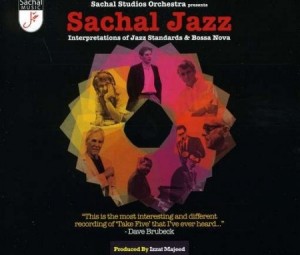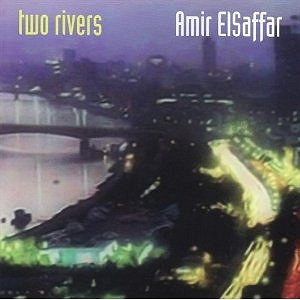By Diaa Bekheet
I love the sound of traditional, classic violins. I’m essentially talking about the age-old classical music, and some of my favorites like, Carmen Fantasy by Pablo de Sarasate, Beethoven Romance, Paganini Violin concerto, Brahms violin concerto, and anything by Vivaldi.
But when I produced and presented Jazz Club USA show for the former VOA Arabic, I loved the new violin sound, the electric sound. It was the first time I gave it a real attention.
My show in 1996 (mp3) was about electric violin pioneer, French composer and bandleader Jean-Luc Ponty, one of the jazz-rock fusion fathers.
[audio:http://www.voanews.com/MediaAssets2/english/2012_12/jean-luc_ponty_1996_diaa_bekheet_JazzClubUSA.mp3]A few days ago, I had a chance to talk with Ponty. He told me that playing electric violin was necessary for him, and it was also a reason to move to California in the 1970s.
[audio:http://www.voanews.com/MediaAssets2/english/2012_12/jean-luc_ponty_diaa_bekheet_jazz-beat_dec2012.mp3]“It was just a necessity for me to have more volume, and to be able to play with a drummer who would play with the same energy as they do when they play with a sax player or a trumpet player.” Ponty introduced a way to amplify violin sound, which attracted the attention of pop and rock musicians, like Elton John, Frank Zapa, and others.
Although his father taught him traditional violin, Ponty found himself much better in an electric one. He found great encouragements from iconic musicians like classic jazz artist Stéphane Grappelli, the world-class French jazz violinist who founded the Quintette du Hot Club de France, one of the first all-string jazz bands.
Ponty admired Grappelli’s talents, but he says he couldn’t find anything to draw from Grapelli’s style and violin techniques. “He said it himself, you know, because there’s a confusion that sometimes people thought I was his student. Then he said, no he [Ponty] was not the student but he did something new for the violin.”
[audio:http://www.voanews.com/MediaAssets2/english/2012_12/jean-luc_ponty_diaa_bekheet_jazz-beat_dec2012.mp3](mp3) Ponty, at the time, wanted to create violin adaptations of what trumpet and saxophone players from the modern jazz era [in America] were doing.
It was Grappelli who encouraged Jean-Luc to show his hidden talent. “When he heard me, when he discovered my playing – I was 20, or 21 years old – he advised me to go out in jazz because you have something special, and that was very important at the time that someone of his caliber would encourage me to dedicate my life to jazz ..”
The classic violin has its distinctive sound, but the electric version is great, too, but it provides different sounds as you can hear it in “No Absolute Time” by French virtuoso violinist Jean-Luc Ponty, who is described as the “undisputed master of violin in the arena of jazz and rock.”
Ponty was born on September 29, 1942 in Avranches, France to a father who taught violin and a mother who taught piano. He studied music in France and at the age of 18, graduated from the Conservatoire National Supérieur de Musique de Paris with the highest award, Premier Prix. Given his superior achievements and excellent grades, he was immediately hired by Concerts Lamoureux, one of the major symphony orchestras in France.
Ponty has released 49 albums and collaborated on hundreds of recordings.
In September 2009, he performed as a guest star of the Chick Corea – Stanley Clarke – Lenny White Trio along with Chaka Khan for a special evening at the Hollywood Bowl. Stevie Wonder showed up for a surprise jam session at the end.
The circumstances that introduced me to Jean-Luc Pony were a bit strange. It was 8:00 a.m. on April 16, 1986, the day after the U.S. bombed targets in Tripoli and Benghazi, Libya. At the time, I was inside a tall building in downtown Cairo where I worked for the West German Press Agency, DPA. I received a call from the BBC host of “The World Today” asking for comments on “Operation El Dorado Canyon,” the U.S. airstrike campaign against Libya. The strike was launched in response to Gadhafi’s alleged role in the 1986 Berlin discotheque bombing.
I was tuning in to Libya’s radio stations to monitor the situation, so I could speak knowledgeably about the Libyan position and reaction. But while dialing, I heard a violinist playing on one of the stations. The music was great, and the artist was Jean-Luc Ponty. The song was: “Mirage” from Le Voyage: The Jean-Luc Ponty Anthology.
That was my first exposure to Ponty. During our recent chat, Jean-Luc and I talked briefly about the U.S., France, and my friends in Paris, and the weather there. He said he missed sunny California.












